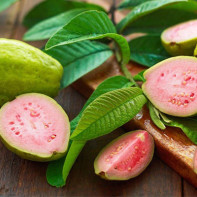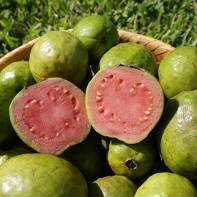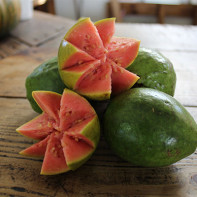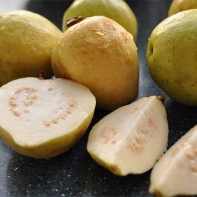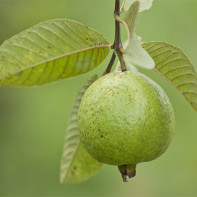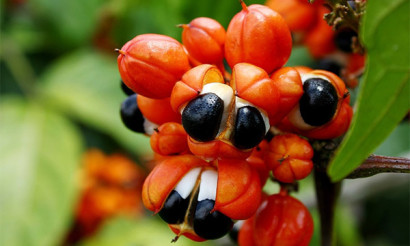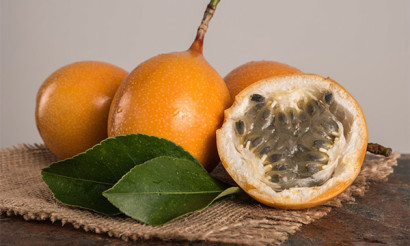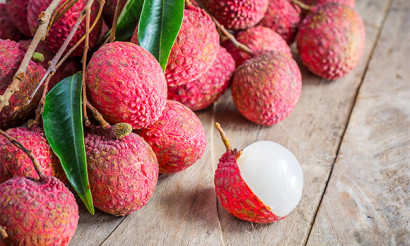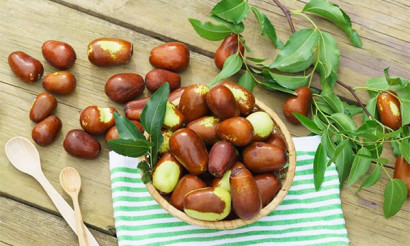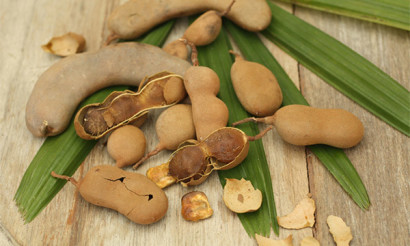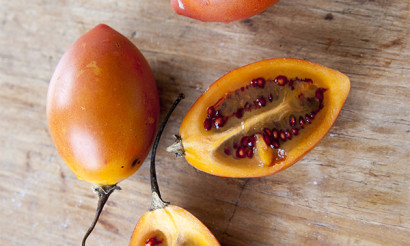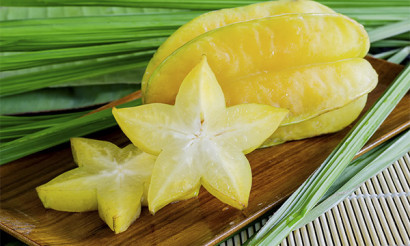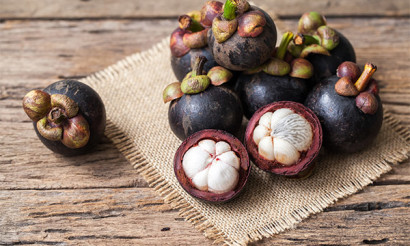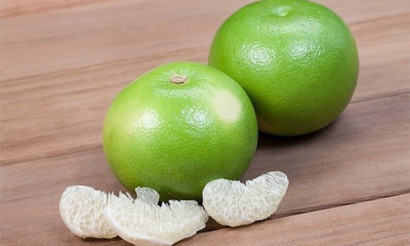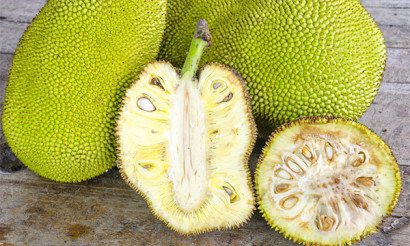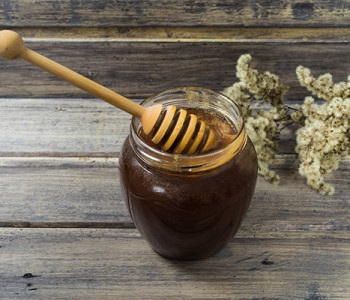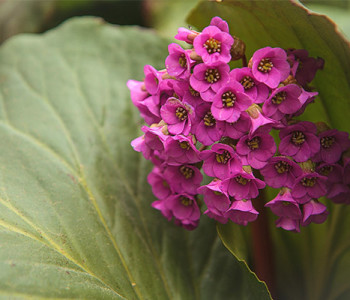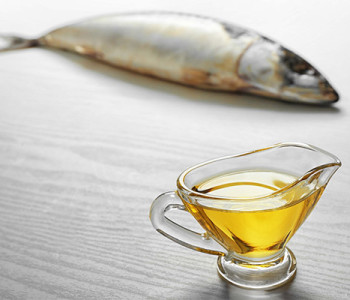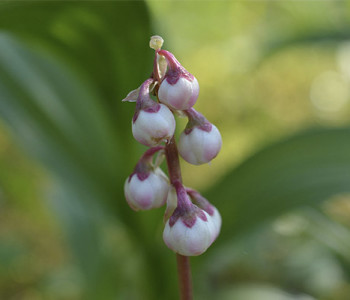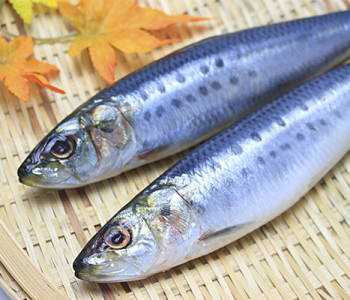Guava: the benefits and harms to the human body
For the first time seeing a guava, people can assume that this is some rare variety of pears or apples, but this is only at first glance. It has its own unique taste and type of pulp. So what is this amazing fruit? How is it good for health, and what can be harmful? Read on.
- What is guava and where does it grow
- Composition and calorie content
- Benefits of Guava Fruit
- General benefit
- For women
- For men
- During pregnancy
- When breastfeeding
- For kids
- When losing weight
- Is guava juice good for you?
- Benefits of Guava Syrup
- Application in traditional medicine
- Harm and contraindications
- How to choose and store
- How to eat guava
- Can I eat bones
- How to clean
- What can be cooked from guava
- Interesting Guava Fruit Facts
What is guava and where does it grow
Guava is the fruit of the plant of the same name, belonging to myrtle. The tree is evergreen and resistant to long droughts. It blooms a couple of times a year and gives very large yields.
The first evidence of guava appeared in the Middle Ages. The fruit was found in Peru, and later became widespread in Africa, Asia and the southern United States of America. Guava is delivered to Russia from Thailand, where it is also a very famous and popular fruit.
There are over 100 varieties of guava. The fruits are somewhat similar to apples and weigh about 100 g. The length of the fruit can vary within 15 cm. The surface of the guava can be of various shades - from pale green to bright raspberry.
The peel of the fruit, despite the appearance, is quite thin. The color of the pulp is very diverse: it is bright yellow, raspberry, cherry and peach. Inside there are a lot of small and hard seeds, the number of which reaches 500, but you can find absolutely boneless varieties.
Composition and calorie content
Guava is ideal for losing weight. The calorie content of fresh fruit is about 68 kcal. Moreover, it contains (g):
- proteins - 2.75;
- carbohydrates - 10;
- fats - 1.
With moderate use, guava will help in losing weight. The main thing is not to overdo it. An adult can eat up to 4 ripened fruits without harm to the body.
Guava is extremely generous in vitamins and minerals:
- Minerals (per 1 fruit): 235 mg of copper, 420 mg of potassium, a lot of iron, sodium and zinc.
- Leaves and fruits are very rich in pectin, fatty acids and essential oils.
- Vitamins of group A, B, C (in larger quantities than citrus fruits), E, K and many others.
The unique aroma of the fruit is the merit of carbonyl compounds.
Benefits of Guava Fruit
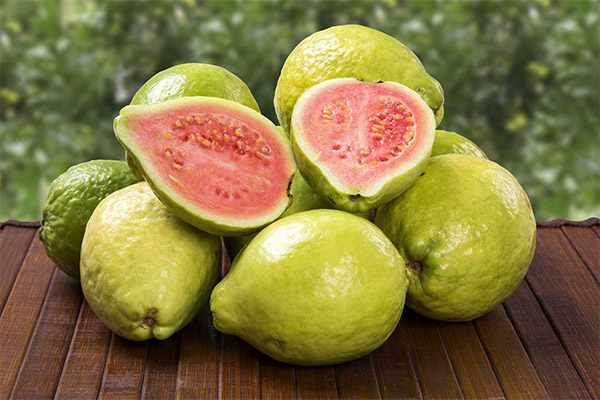
General benefit
- Guava has more vitamin C than any other foods. In this she even overtook citrus fruits. Vitamin C is needed for adults and children daily. It helps to develop immunity and restore strength after physical and mental stress.
- Potassium and vitamin C together help strengthen the cardiovascular system and help fight disease. The constant use of guava will help normalize heart rhythms, improve myocardial nutrition and make blood vessels more flexible and elastic.
- The leaves of the plant are used to treat wounds and cuts, anesthetize teeth and relieve symptoms of the common cold. Tea made from guava leaves helps to strengthen teeth, heal ulcers in the oral cavity and get rid of bleeding gums. A mixture of leaves and fruits helps with diarrhea and helps treat diseases of the gastrointestinal tract.
- Guava is good for the intestines and stomach due to the presence of dietary fiber. The fruit helps to saturate the body and give it a boost of energy for the whole day.
- One guava fruit, eaten before bedtime, will allow you to sleep soundly all night, and when you wake up in the morning, you feel just fine.
- The pulp of the fetus contains a huge amount of thiamine, which plays an important role in the normal functioning of the nervous system, and pectin helps to improve digestion and restore intestinal function.
- The red guava fruits are rich in beta-carotene, which is actively involved in the metabolism. This will help people with eating disorders to restore the body.
- In diabetes, guava, due to its high fiber content, will help regulate the absorption of glucose by the body. The fruit helps prevent the development of type 2 diabetes.
- A source of vitamin A, such as guava, can slow down the development of eye cataracts, macular degeneration and generally improve eye health.
- The most important and important property of a guava is its ability to inhibit the growth and metastasis of cancer cells. Studies of scientific institutes have proved that guava has a positive effect in the treatment of cancer of the prostate and breast, as well as cancer of the oral cavity. Oil from the leaves of the plant prevents the proliferation of cancer cells and is often used in folk medicine.
- The copper contained in the guava stimulates the thyroid gland, controls the metabolism and controls the production and absorption of hormones by the body.
- Guava seeds help in the treatment of constipation, as they serve as an excellent laxative.
- With colds, the juice of green fruits and tea from the leaves of the plant will help reduce cough and slow down the activity of microbes. However, during illness, do not eat ripe fruits, as this can only aggravate the situation.
For women
The use of guava helps women achieve the effect of rejuvenation and maintain the result due to the presence of amino acids and vitamins in the fruit structure. Tea and fruit are an excellent way to restore the menstrual cycle.
For men
Eating guava fruits in food will allow you to get rid of frequent seizures, strengthen the vascular walls and lower blood cholesterol. All this will contribute to the good functioning of the cardiovascular system, which is the key to excellent potency.
During pregnancy
The fruits of guava contain a huge amount of folic acid needed during pregnancy. It affects the general condition of pregnant women, contributes to the proper development of the fetus and reduces the risks of diseases.
When breastfeeding
The table of nursing mothers necessarily includes fruit. The large number of vitamins and minerals available in fruits makes the guava an ideal helper for the immune system of mothers. However, it is worth consuming the fruits with caution, and it is best to first consult with your doctor.
For kids
The vitamins contained in the guava contribute to the mental development of children, strengthen their body and fight colds.
When losing weight
Guava is just perfect for dieting. Low calorie and high nutritional level is just a godsend for losing weight. The fruits have no contraindications, and a pleasant sweet taste will help discourage cravings for harmful products.
Is guava juice good for you?
Guava juice is used to prepare various dishes, syrups and drinks. But what are its beneficial properties? Is it possible to use it in its pure form?
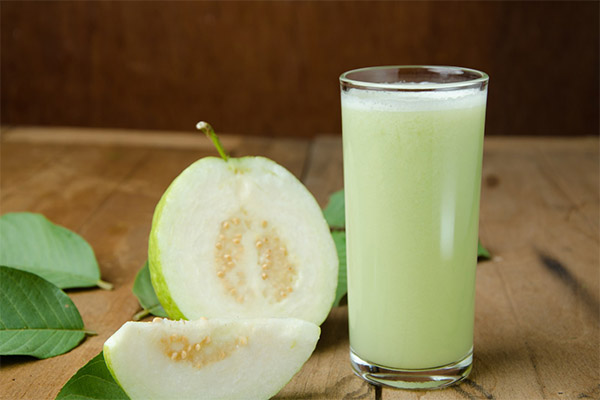
- Guava juice has excellent bactericidal properties. The fetus contains substances that are active in the fight against harmful bacteria and viruses, and also help to remove harmful toxins from the human body.
- Natural juice is a great helper in losing weight. The high fiber content allows you to remove fats from the body, while saturating it and giving a supply of strength and energy. To achieve success, along with the use of juice, it is important to exercise.
- Type 2 diabetics can drink guava juice without harming the body. It helps glucose to be properly absorbed in the blood and thereby lowers its content. The juice should be diluted with water before drinking.
- Guava juice helps stop the development of cancer and cancer due to the high content of lycopene, which is a powerful antioxidant that helps the body eliminate harmful free radicals.These radicals also lead to cancer.
- Influenza can also be cured by consuming guava juice. A large number of vitamins helps the immune system in recovery and contributes to a speedy recovery.
- Guava juice, like fruits and syrup, helps to improve the condition of the skin and get rid of wrinkles, acne and black spots. It tightens the skin and muscles due to its astringent properties.
Benefits of Guava Syrup
Guava syrup is a very pleasant smelling and superb tropical delicacy. Both adults and children love him. The syrup is made from guava juice with pink pulp. It has gained enormous popularity in cooking, but few people know that it is of great use in the treatment of diseases.
Even after prolonged heat treatment, vitamins and minerals do not disappear anywhere. Guava in the form of syrup is actively used to treat colds and coughs. It contains a large number of esters of beneficial acids, as well as arabinose.
The use of syrup and guava fruits reduces the risk of developing chronic diseases. Guava syrup kills germs and anesthetizes, reducing throat cramps. A few days after the start of the cold, it begins to recede.
A decoction based on guava leaves also helps with a strong cough, and it is also extremely useful for them to gargle for disinfection. Tea from such leaves saturates the body with vitamins. If you drink it before bedtime, you can significantly reduce the risk of developing diseases and help the body recover if it has already been infected.
Guava has virtually no contraindications and side effects, so it is allowed to drink syrup from it even during pregnancy, breastfeeding, and it can also be given to children from 3 years old for the treatment of colds.
Daily use of syrup helps improve skin condition, eliminates facial wrinkles, gives a general tone. The vitamins contained in the drink slow down skin aging.
Excessive use of syrup can lead to diarrhea and indigestion, so you should not overdo it either.
Application in traditional medicine
Guava has no use in official medicine, but this does not mean that it does not have any useful qualities.
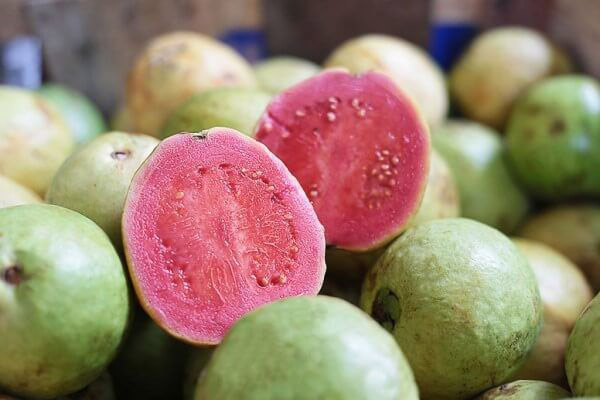
- Fruits are a very valuable food that normalizes digestion and improves the functioning of the heart and vascular system. Guava helps increase the overall tone of the body, strengthens the lymphatic system.
- Tannins, which are part of the guava fruit, help maintain a firming effect, so it can be used for digestive disorders. Fruits facilitate breathing by diluting and removing phlegm from the bronchi.
- Guava is widely used in folk medicine. For example, guava oil is used for aromatherapy, as it has a strong antimicrobial effect.
- Traditional healers use literally all parts of the guava tree, from fruits to bark and leaves. Decoctions of fruit support the body, help bring down the fever and treat skin diseases.
- Brazilians use guava in the treatment of diarrhea, Panamanians treat asthma, bronchial disease, various types of pneumonia and the common cold. In East India, guava treats epileptic seizures and convulsive contractions, while in the Philippines it relieves heart and vascular disease.
- Guava tea can relieve dizziness, cure indigestion and intestines, helps with dysentery and has a positive effect on the restoration of the menstrual cycle.
- The crushed leaves and guava juice heal open fresh and festering wounds. Chewing the leaves of the plant reduces tooth pain, restores gums.
Harm and contraindications
Guava brings incredible help to the human body, even pregnant women are allowed to eat fruits. But, like any other product, it has a number of contraindications:
- Guava harm can occur with excessive use. It can cause diarrhea and indigestion.
- Some people may have individual intolerance, manifested in the appearance of allergic reactions.
- Despite the benefits in treating diabetes, you should not use guava in large quantities, because it is still a source of fructose.
- People with diseased kidneys prone to stone formation should not eat the unripe guava fruit.
- With colds, you don’t need to eat red sweet fruits, so as not to make it worse, since microbes tend to multiply faster in a sweet environment.
Guava is best eaten, pre-cleaned and thoroughly rinsed, since the peel may contain toxins that cause food poisoning. Toxins appear due to the chemical treatment of fruits before transportation over long distances in order to preserve freshness.
Residents of European countries are not used to tropical fruits, so an unaccustomed organism may simply not accept a very large amount of guava.
It is important to eat fruit with caution, because hard fruit bones can damage tooth enamel or even break or chip a tooth.
How to choose and store
Guava is quite unpretentious in storage. Fresh it can be bought cheaply from street vendors in Thailand, but in Russia, fruit also ceases to be a rarity. It is very easy to choose, following the following recommendations:
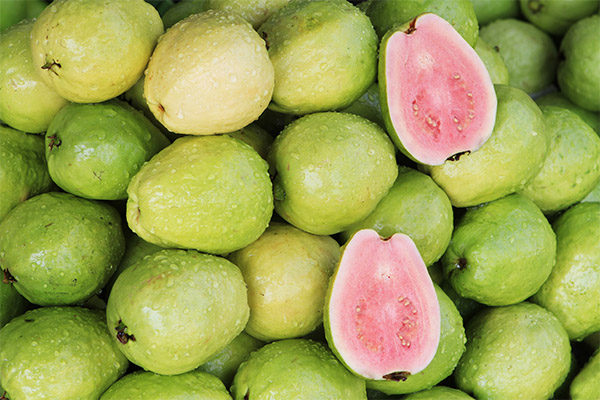
- Fruits should be smooth in appearance, have a smooth yellowish color without spots.
- To the touch, the fruits are dense, but not rigid, they have a slightly soft structure.
- Guava smells of ripe juicy strawberries and musk at the same time.
- Bright, but fresh aroma, odorless guava, most likely, is overripe.
- Overripe fruits are easily distinguished by the presence of brown spots and too soft pulp.
- Unripe fruits are very hard and sour, they can only be eaten with sugar, salt or pepper, as the people of Asia do.
- Ripe fruits have very fleshy, soft and tasty flesh.
- If possible, it is best to eat a freshly picked guava.
Store tropical fruit in plastic containers or plastic bags at a temperature of 8 ° C to three weeks. An increase in air temperature shortens storage periods!
Hypothermia or exposure to fruit in the sun is fraught with the appearance of:
fungal diseases of the fetus;
sunburn on the surface;
faded spots.
At room temperature, the fruits can be stored for several days, and then begin to deteriorate. For longer storage, the guava can be frozen, while it does not lose its beneficial properties.
How to eat guava
Guava is traditionally accepted to eat raw. Fresh fruits have a pleasant taste. The pulp has a sugary consistency, suitable for the preparation of dishes, drinks and confectionery.
In Asian countries, guava is something ordinary, like apples. Most ripe fruits have the smallest amount of acid, loose pulp and a pleasant smell. Unripe fruits do not need to be eaten so as not to harm the kidneys. Fresh sliced guava slices are added to salads, served on the table separately as an independent dish, as a dessert.
Some people dislike the smell of fruit, so they are boiled. Seedless stewed guava is one of the most popular dishes in South America. In stores, you can often find canned and frozen fruits in whole or in slices.
Fresh guava can be eaten with salt, sugar, spices and even soy sauce.The fruits can be cut into 4 parts and consumed as a watermelon, leaving only the peel.
Can I eat bones
It is worth remembering that the fruit has a lot of seeds, they are quite edible, but they should not be chewed, as they are very hard and can harm the health of the teeth. When chewing and nibbling the fruit, one cannot make sudden movements precisely because of the bones.
In general, the bones do not interfere in any way and are even beneficial to health. In guava dishes, they are so ground that they are not even noticeable. Some guava varieties are generally pitted.
How to clean
Guava with a peel can only be eaten in Asian countries, where it is not processed for transportation. Sellers in Thailand offer peeling fruits.
With self-cleaning, you need to clean the fruit from a dense thin peel and, if desired, remove the part with seeds.
What can be cooked from guava
Guava, due to its high pectin content in fruits, is great for making jellies and jams. Jams from this fruit can become supplements to main dishes from meat, and also are often spread on sandwiches and served for tea. To prepare them, you need sugar, lemon juice and guava fruits.
Various purees, marmalades and preserves are made from fruit, ideal for adding to pies. Drinks with the addition of guava juice have a sophisticated taste, these can be:
- compotes;
- milkshakes;
- alcoholic cocktails;
- fruit juices (with the addition of juices of other fruits);
- tonics
- drinking yoghurts;
- fruit smoothies.
Guava pulp serves as a raw material for the production of various bars, jams, ketchup, oils, fruit syrups. It is used to add to puddings, pies and ice cream. Caramel is a great addition to guava.
This fruit is found in many cakes, sauces, side dishes, sorbets and pastries. From it they make food for young children, guava enrich soft drinks and various foods with vitamins. The fruits can be subjected to rapid freezing, dried and canned.
Guava goes well with beef and tuna, ham, tomatoes, red bell peppers and various herbs. Jelly from it is perfect as a side dish for venison.
In Africa, wine is made from guava, and in India, chutney is a special seasoning for various dishes.
Interesting Guava Fruit Facts
Guava is a very unusual fruit that has a huge amount of beneficial properties and qualities. Here are some interesting facts about this miraculous plant:
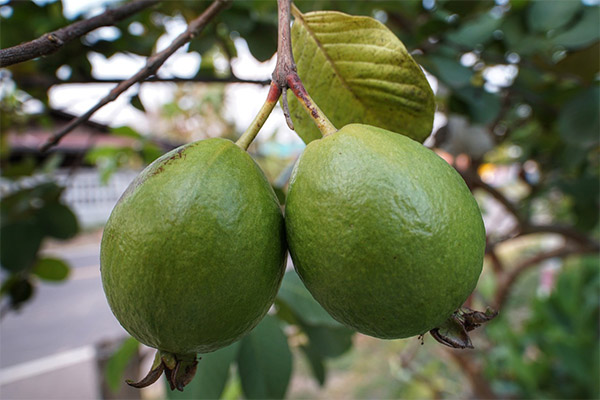
- The guava is nicknamed the "apple of the tropics" because it has a shape resembling an apple and many small bones inside.
- Unripe fruits are very much appreciated in Asian countries. Of these, the local population produces medicinal decoctions and juices.
- Plant essential oil is involved in the production of fragrances for car interiors.
- The guava plant looks like an evergreen shrub or small tree. Varieties used in cultivation can grow up to 4 meters up.
- The glossy leaves of the plant, having a dark green color, are most often oval. On the branches they are located opposite each other.
- Guava flowers are white, most often appear individually or are located in clusters. There are a lot of stamens and tiny pistils in the flowers.
- The fruits are oval, round, as well as pear-shaped. The ripened fruits are covered with a skin of yellowish, pale green or dark burgundy hues. The pulp is mainly white, yellow, red or pink.
- The plant begins to bear fruit only after 2-8 years from the moment of planting on the plantations. Fruits smell very much like strawberries, musk and lemon. The pulp is creamy, sweet, slightly tart in taste. Under favorable climatic conditions, trees can bear fruit up to two times a year.
- Fruits, according to researchers, contain from 120 to 546 small seeds that are located in the core of the fruit.They are quite edible.
- Birds living in the tropics, as well as mammals, are very fond of guava and help in the distribution of seeds.
- Guava, due to the high content of various minerals and vitamins, contains many phytochemicals and has a beneficial effect on human health.
- You can often hear that this is a kind of "superfruit", as it is a champion in the content of vitamin C, overtaking citrus. Also, the fruit contains more fiber than pineapples, it has significantly more lycopene than in tomatoes, and more potassium than in bananas.
- Guava is used raw or cooked without losing its beneficial properties.
- Green leaves of the plant are a source of black pigment used by the local population in the production of textiles.
- Guava fruits help in the treatment of diseases of the cardiovascular system, improve blood circulation, lower blood pressure, treat constipation and diarrhea, and respiratory diseases.
- Tea from plant leaves relieves the symptoms of colds, fever, and dysentery.
- The plant can live and bear fruit up to 40 years.
«Important: all information on the site is provided exclusively in fact-finding purposes. Before applying any recommendations, consult with a profile specialist. Neither the editors nor the authors are liable for any possible harm caused materials. "

